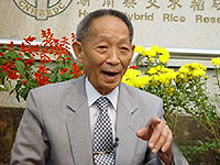| Home / International / International -- Cultural Sidelines | Tools: Save | Print | E-mail | Most Read |
| Scientists Honored by Elite US Academy |
| Adjust font size: |
"I didn't tell my colleagues" at the The announcement that Bai and Yuan Longping, director-general of the China National Hybrid Rice Research and Development Centre in Central China's Bai and Yuan are among the newly-elected 72 members and 18 foreign associates from 16 countries to be named for "one of the highest honors in American science and engineering." "I think the fast development of Chinese science has drawn increased attention from the
With more than half the country's paddy fields growing his hybrid rice, Yuan, indeed, has plenty to be proud of; but to him, honors are secondary. "I do believe this is a grand honor, not only for me but also for my colleagues who also devoted themselves to hybrid-rice technology," Yuan told China Daily. "Of course, we have to be level-headed, not be proud, and try to maintain A global meeting of the In 1996, Yuan set up an agricultural science and technology fund to recognize and support those who have made achievements in agriculture, with an initial amount of US$15,000. Today, there is more than 10 million yuan (US$1.25 million) in the fund with company and individual donations. ( |
| Tools: Save | Print | E-mail | Most Read |
 |
| Related Stories |
|

